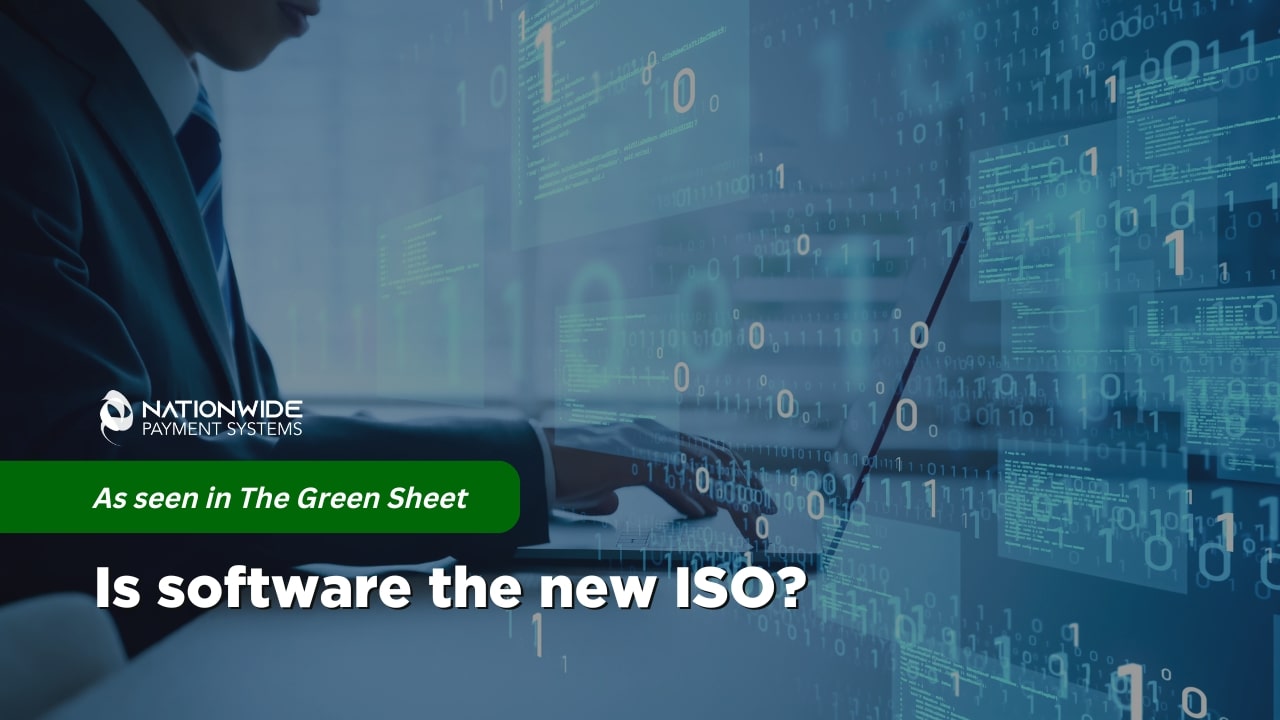Previously seen in Green Sheet
Is anyone else getting tired of losing residuals to software companies? After 24 years in this business, I’ve seen merchant acquirers and private equity firms buy ISVs and rip away millions of dollars from merchant level salespeople’s (MLS’s) residual streams.
I’ve seen former partners, including Lightspeed, Future POS, Restaurant Manager, Positouch, and even Micros, become competitors. In the last two years alone, I’ve seen $5 million in processing and close to $10,000 a month in residuals go out the door.
Today we only partner with all-in-one providers that offer processing and software. We may make a little less, but we have fewer headaches because these partners handle installations and programming and don’t stick their hands in our residuals.
Fewer issues, more selling time
In the long run we sell more and service less without having to deal with equipment issues, which gives us more time to sell. While we no longer make money on hardware, I appreciate having fewer equipment issues and more selling time.
Michael Nardy, CEO of Electronic Payments Inc., concurred, stating that his company prefers to sell its own value-added solutions than to private-label solutions from third-party providers.
“You hit the nail on the head by saying ‘we may make less’ but ultimately, it is either less or zero,” he added, Reflecting on his own company’s journey,” he cited the following key considerations in a recent Facebook post:
- Agents (and by extension ISOs) have a preferred provider. This is some ISO or sub-ISO or processor that they have a Schedule A with. Could mean they have access to TSYS or Fiserv and so any solution would need to work under those platforms. Agents do their best to find a solution – really any solution – that works on the platform they have access to.
- Software devs and POS companies realized the amount of work and time involved in supporting POS. Time costs $$. And the monthly SaaS, annual fees, and per-incident fees are not enough to make the time invested worthwhile. Therefore, they go after the processing.
- Investors – PE, other larger companies (Shift4), etc. – These look for things accretive to their business. If you find 10,000 sites and all there is SaaS revenue, it’s very easy to monetize the payment residual to your benefit. Buy and convert. Very simple process.
Thus, you have this battle: Agents want to have their residual and do not want to entertain a revenue share with other companies or ISOs or processors once they are comfortable.
Software ISVs want to make more money and are tired of agents just taking the software vendor for granted and keeping all the acquiring profits while doing none of the POS support and service. And investors want ROI and want to buy assets that they can monetize more than previously.
Valuations are a good example. Dinerware and PC America, with approx. 25,000 installs each, sold for $15 million. If they had processing revenue share of just half the residuals, and had 15,000 installs instead of 25,000 (due to certain resellers not interested in selling the product), these businesses would have an EV of more than 10 times the $15 million they were bought for.
LiquorPOS sold for $3.4 million and had 4,000 installs. If they had 2,000 installs and the processing revenue from those locations, we’d be looking at a $20 million business not a $3.4 million business.
No room for selfishness
So agents are now finding out the hard way that they have been selfish. They have wanted all the processing revenue and have not been willing to share. In addition to not being willing to share, they have not been willing to learn new technologies, that is, POS systems, and they have not been interested in developing their own (save a few agents or groups that have built something).
Most of the solutions out there are just private labels of Linga or others. Some have private-labeled systems that have turned off the private labels and terminated those programs, forced migrations of merchants, etc. So much for those residuals.
The smart – at least in my opinion – POS guys are telling their potential resellers, “Hey, you like our software? Great! We are the ISO, and if you want to bring us a merchant, we’ll do a rev share with you.” The smart – again, my opinion – agents are taking advantage of these solutions. The capitalized agents are building their own solutions.
I agree with Nardy that MLSs need to be vigilant when vetting software. As he noted, it’s time for a new playbook. We need more than generic white-label, processor-agnostic solutions. We need long-term relationships with partners who share our commitment to delivering great products and services to the merchant community.
Want to know more? Keep reading The Green Sheet and consider following me on LinkedIn, where we can share ideas and support each other.
CLICK HERE TO FIND MORE ABOUT OUR PROGRAMS
FAQ: Frequently Asked Questions
What is an ISO in the payments industry?
An Independent Sales Organization (ISO) is a third-party company that sells payment processing services to merchants.
How are software companies affecting ISOs?
Software companies are increasingly integrating payment processing into their platforms, reducing the need for traditional ISOs and taking a share of residual revenue.
Why are ISOs losing residuals to software companies?
Many software providers now offer all-in-one solutions that include payment processing, making it harder for ISOs to compete.
What strategies can ISOs use to retain their revenue?
ISOs can partner with providers that offer both software and processing, ensuring they maintain control over their merchant relationships.
How do software developers view payment processing?
Many software developers see payment processing as a more profitable venture than simply selling software subscriptions.







